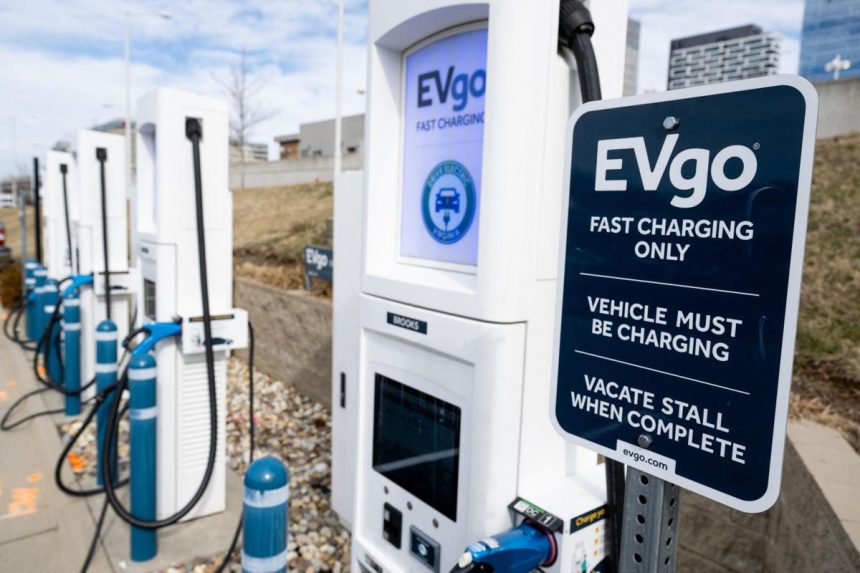It appears that the green energy tax breaks included in last year’s Inflation Reduction Act (IRA) are more popular among businesses than Congress imagined when it passed the bill. That likely will further increase the federal deficit but also reduce carbon emissions more than first forecast. Which raises the question: On net, is that a good thing or a bad thing?
In large part, it depends on your perspective. If you believe that climate change is a left-wing fantasy, you probably think all subsidies aimed at mitigating it are a waste of taxpayer money and a windfall to business.
On the other hand, what if you believe global warming is an existential threat to the planet? Then, the subsidy story is much more ambiguous.
Partisan Backflips
Unsurprisingly, the higher projected revenue loss has the politicians doing partisan backflips. President Biden and congressional Democrats, who generally loathe corporate tax cuts, were all-in on the multi-billion-dollar package of green energy tax subsidies. And they are fine with the higher costs.
House Republicans and the Wall Street Journal editorial page (paywall), whose love for corporate tax cuts usually is boundless, hate the IRA’s many alternative fuel tax credits. And they are in high dudgeon over the higher cost projections.
The GOP-controlled House Ways & Means Committee blasted the subsidies for, wait for it, “shovel[ing] more money into the hands of the wealthy, large corporations, and foreign countries.” This just weeks before it approved a bill that would cut other taxes for large corporations by more than $80 billion in 2023 alone.
The Journal called it “an enormous new corporate entitlement whose costs will…blow up the deficit.”
Uncertain Estimates
Keep in mind the estimates are highly uncertain. Unpredictable consumer demand, regulatory constraints, access to raw materials, and even future interest rates could affect how many of these credits are claimed.
Initially, the Congressional Budget Office and the Joint Committee on Taxation figured the subsides (about two-third tax benefits and one-third direct spending) would add about $391 billion to the deficit over the next decade (excluding offsetting tax hikes). But more recent estimates by JCT, CBO and some outside analysts suggest the cost could be two to three times as much.
For the moment, ignore the partisan spin and the uncertainty. Is higher-than-expected business use of green energy subsidies a net positive or a net negative?
Supporters of government climate initiatives would say that if the goal of the credits was to accelerate the production and consumption of alternative energy, more take-up means producers are responding more enthusiastically to the incentives. Sure, it will add to the budget deficit in the short run. But compared to the potential costs of climate change, more government debt may be a small thing.
Better Alternatives?
Even if you believe all that, however, ask yourself: Are there better, more cost-effective tools to slow climate change?
To start, much of the IRA money inevitably will be wasted, largely because companies and consumers will get tax benefits for doing what they would have done anyway. By one estimate, three-quarters of electric vehicles expected to be sold in 2030 would be purchased without the new tax credits.
And even with more take-up than first expected, the IRA’s energy subsidies still address only a small fraction of the climate problem. By most estimates, with the subsidies, carbon emissions will fall by between 35 percent and 41 percent by 2035 (compared to 2005). But if the IRA never had passed, existing technologies and changing consumer preferences are projected to reduce emissions by 29 percent to 35 percent. Is a roughly 6 percentage point further decline worth $1 trillion?
Carrots Or Sticks
The stick of a broad-based carbon tax is the big alternative to the carrot of subsidies. In theory, it has many advantages. Among them: It does not attempt to pick worthy technologies but rather encourages the market to respond to higher fossil fuel prices by developing its own alternatives. And, of course, it doesn’t add to the budget deficit.
But there is the difficult politics. While carbon taxes are much loved by economists, they have little public support. Voters want cheaper power, not more expensive carbon-based energy.
Some analysts, including my Tax Policy Center colleague Eric Toder, argue that the problem with IRA-like subsidies is not that they are excessively generous, but that they are both too modest and too poorly targeted. Rather than subsidizing existing technology, which the IRA mostly does, they’d like to see a worldwide comprehensive initiative aimed at developing better, cheaper energy alternatives.
Their argument: Subsidies that encourage more rapid adoption of existing technology won’t make much of a dent in the massive climate problem. That will take new technological leaps. In fairness, the IRA tries to be flexible enough to encourage some of this but many of its tax benefits still support existing technology.
As usual, then, we are left with an ambiguous answer. Are the IRA’s green energy subsidies, like many government programs, clumsy, inefficient, and costly? Yes. Are they an important step forward in the battle against climate change? Yes again.
Read the full article here









